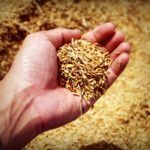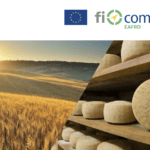More efficient state aid and agro-forestry strategies are essential to close the cohesion gap in rural areas.
Sustainable and efficient management of agriculture and forestry is essential to safeguard and protect the landscape, keep rural economies alive, fight depopulation and, in this way, combat development disparities. Regional and local leaders call on the European Union to support SMEs and micro-enterprises in rural areas, in particular through the introduction of simplified procedures in state aid rules.
The EU’s drive to become a climate-neutral continent by 2050 and its efforts to revitalise rural areas, while maintaining cohesion as a fundamental value of the EU, must go together with some flexibility in state aid rules for agriculture and rural businesses. This is the main message conveyed by the European Committee of the Regions (CoR) in its opinion on Future EU rules on state aid for agriculture, rural areas and forestry, drafted by Guido Milana (IT/PES), a member of the Olevano Romano municipal council, and adopted at the plenary session on 27-28 April.
“After the crisis caused by the pandemic, the war in Ukraine puts enormous new pressure on Europe’s economic recovery and the ecological transition in the agricultural sector. However, we cannot afford to go backwards in the fight against climate change and we say a clear ‘no’ to those who use the conflict to undermine the Green Pact and the Farm to Fork Strategy. We insist on the importance of investing in the ecological transition, but at the same time we call for investment to be accompanied by adequate support measures. These include, first and foremost, state aid to the agricultural, rural and forestry sectors, which must be made more flexible and simpler. To this end, we advocate redefining the concept of small and medium-sized enterprises and developing a new definition of micro-enterprises, specific to the agricultural sector, as we strongly believe that these enterprises should be supported as they are best suited to achieve the ecological transition,” said the rapporteur.
Regional and local leaders call for support for farms on their way to the green transition, especially smaller businesses active in landscape protection, as well as micro-enterprises, which are unlikely to be able to make the transition on their own. CoR members also stress that sufficient support must be given to SMEs in rural areas, without distinguishing between those operating in the agricultural sector and those in other sectors.
The European Commission is to present new proposals for the granting of state aid for agriculture, which will apply from 1 January 2023. The Committee stresses the need to simplify administrative procedures for aid to local authorities, especially when they are beneficiaries of state aid interventions or when they have to deal with emergency situations. At present, simplified costs are considered compatible with state aid rules only when aid measures receive EU co-financing; however, the Committee argues that there does not seem to be a valid justification for continuing to provide for different methods of calculating eligible costs depending on the source of funding.
Alongside agriculture, the forestry sector plays a crucial socio-economic role in regional development, particularly in remote areas, mountain regions and the most disadvantaged territories. As far as this sector is concerned, local leaders call for infrastructure support not to be considered as state aid by default when it concerns non-productive investments. In a separate opinion adopted during the plenary session, drafted by the Valencian regional secretary for the European Union and external relations, Joan Calabuig Rull (ES/PES), CoR members underline the positive contribution that sustainably managed and industrially processed forest products make to many regional economies.
The Opinion on the EU Forestry Strategy 2030 draws the attention of the European Commission to the need to strike a balance between environmental, social and economic aspects of sustainable forest management and stresses the importance of respecting and maintaining forest diversity through sustainable forest management practices.
Local leaders point out that sustainable forest management requires more European funding through the allocation of transparent and realistic financial resources, while simplifying administrative processes.
The rapporteur, Mr Calabuig, said: “Establishing a common framework and common objectives at European level is very positive but this does not mean weakening subsidiarity in this area, given the diversity of forests in Europe and the fact that 40% of forests are managed by local and regional authorities. The EU, which has a wide range of competences in related matters, must support the regions and municipalities, which will ultimately implement the European strategy. This approach is essential to achieve sustainable forest management, understood in its three dimensions: social, economic and environmental.
Forestry, agriculture and land-use related products such as biomass, wood products and bio-products contribute significantly to economic development and job creation in rural areas. The land use, land use change and forestry (LULUCF) sectors are also key for climate policy. Åsa Ågren Wikström (SE/EPP), member of Västerbotten County Council, rapporteur for the opinion “Review of LULUCF and effort sharing regulations“, adopted at the same plenary session, said: “The forestry sector still has a lot of potential to demonstrate in climate change mitigation and in the development of the local and regional bio-economy. Carbon sequestration in forests and the use of forest-based products and bioenergy can contribute to reducing climate impacts and creating new jobs. Climate change is a transboundary problem that cannot be solved by national or local measures alone. All sectors of the economy must contribute to reducing carbon emissions while maintaining the balance between equity and solidarity. The necessary transformation must be based on facts and involve regional and local authorities”.

HORIZON EUROPE: Novel Agro-Photovoltaic systems |
More information: European Committee of the Regions







Leave a Reply